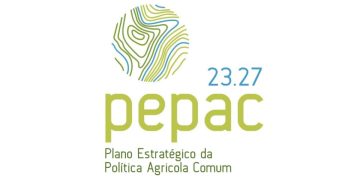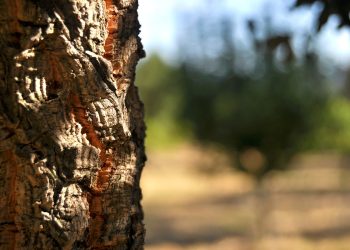Let us be clear at the outset. Brexit was always going to be a lose-lose situation for both the UK and the EU. Having said that, the Trade and Cooperation Agreement (TCA) agreed on Christmas Eve between the UK and the EU which provisionally entered into force on 1 January this year was a very significant achievement for the two negotiating teams.
It represents a significant improvement over the ‘no deal’ Brexit that had threatened in the previous weeks. Critically, it prevents the imposition of tariffs on UK-EU trade, although subject to rules of origin to determine eligibility for the zero-tariff preferences. As important, it provides an agreed basis on which to develop the longer-term relationship between the two parties. This is far preferable to the outcome we would have faced if there had been a bad-tempered break-up followed by a debilitating blame game.
The Agreement respects the red lines of both parties. It allows the UK to enter its own trade deals, establish its own regulatory standards, regain control of its fisheries (after a transition period of five and a half years), and removes any role for the European Court of Justice. This requires that it leaves both the customs union and the single market. On the EU side, it minimises the economic damage by establishing a largely goods-only free trade agreement while preventing significant cherry-picking of the benefits of the single market. The EU was negotiating while looking over its shoulder at the precedents it might set for other countries (for example, Norway) that might see advantages in a Brexit-style trade deal.
The Agreement is only provisionally applied and is not yet home and dry. It has been adopted by the UK Parliament but has yet to be approved by the European Parliament. It will also require unanimous approval in the EU Council. Both steps are expected to happen by the end of February, although this date can be postponed. Although in EU legal terms the TCA is an association agreement, Member States will not be parties to it and it will not require ratification by the individual Member States in their own right. My view is that the UK deal is a high-water mark, given the size of the UK economy, and that other countries wishing to leave the single market would struggle to replicate its provisions.
However, ratification of the agreement is unlikely to end the Brexit saga. Negotiations are likely to continue on different issues. First, there are no provisions on mutual recognition of product testing (so-called ‘conformity assessment’), although the EU has such arrangements with various countries, including Canada, Japan, US and Switzerland. Second, there is no process for recognising equivalence of food safety measures, such as the EU has agreed with Canada. Third, there is no framework for mutual recognition of professional qualifications (although the qualifications of Union and UK professionals recognised prior to the end of the transition period will continue to be recognised in the other party under the Withdrawal Agreement).
Perhaps more important are the frequent opportunities for review and termination of the Agreement itself. The Agreement will be reviewed every five years (FINPROV.3). Either side can give notice to terminate the agreement without giving reason and it will end 12 months later (FINPROV.8). There are also many provisions on the termination or suspension of specific parts of the treaty. A review of the Agreement can also be triggered if a Party considers that the “rebalancing mechanism” (discussed in the following post) has been used frequently or if a measure which has a material impact on trade or investment has been in place for more than 12 months. If the Parties cannot agree on amendments to the Agreement, either Party may terminate the trade part of the Agreement which would also terminate the road transport part and, in certain circumstances, the aviation part. In addition, the Northern Ireland Protocol (part of the Withdrawal Agreement, not the TCA) rests on periodic consent by the Northern Irish Assembly, which must approve its continuation for the first time in 2024. At that point, the relationship with Europe might be back on the table.
This post reviews the early experience of implementing the Agreement focusing on tariff and non-tariff issues, It does not discuss the special provisions of the Northern Ireland Protocol which is governed by the Withdrawal Agreement even though it also entered into force on 1 January 2021. One of the major sticking points in negotiating the Agreement in the final stages was how to ensure a level playing field with respect to taxation, state aids, competition policy, labour and environmental standards. We look at the level playing field issues in a separate post tomorrow.
Tariff provisions
The Agreement provides for zero tariffs and quotas on trade in goods between the two parties, the first time the EU has agreed full liberalisation in a trade agreement. However, this is not as unrestricted as it sounds. Any free trade agreement (as distinct from a customs union) comes with a set of rules of origin.
These rules determine whether a particular product originates in the partner country and thus can benefit from tariff-free access. They are designed to avoid ‘tariff-hopping’ where a third country transships its goods through the United Kingdom to avail of the zero tariff preferences that the Agreement offers.
Rules of origin lay down the minimum amount of processing that must take place in the exporting country to claim ‘origin’ and thus the right to benefit from the tariff preference. For example, for electric cars exported between the UK and the EU after 2027, at least 55pc of the content must be of UK or EU origin if the car is to benefit from the zero tariff preference.
Rules of origin are also relevant to trade in food particularly for composite food products where some ingredients, such as sugar, cereals, coffee or cocoa, are sourced from third countries. Rules of origin create an incentive to use locally-produced inputs in the production of food and drink for export to ensure eligibility for the zero tariff preference.
Another instance concerns distribution channels where goods are exported from an EU country to a supermarket distribution centre in the UK. Some of these goods may be sent further to the supermarket’s stores in another EU country. Even though the product originated in the EU, it appears such transshipped goods may not qualify for zero-tariff preferences under current EU rules. The EU’s position appears to be that the UK should not expect to act as a distribution centre for goods moving within the EU in the future.
Non-tariff barriers
Even if trade is in principle free of tariffs, the TCA does not avoid the introduction of additional trade costs due to customs procedures, additional physical inspections when goods enter the UK or the EU, the need for health certificates for specific food products, changes in the treatment of VAT, and time and transport delays. In the longer term, if standards diverge, producers wishing to cater to both markets must meet both sets of standards and fulfil all applicable compliance checks by the appropriate bodies. These are an inevitable consequence of the UK leaving the EU customs union and single market.
Of importance for agriculture and food trade are the provisions for cooperation on sanitary and phytosanitary (SPS) measures. These are set out in Chapter 3 of the GOODS Title that also lays down separate provisions regarding cooperation on animal welfare, antimicrobial resistance and sustainable food systems. The SPS provisions do not go beyond WTO rules. As far as the EU is concerned, standard EU rules applicable to imports from third countries will apply to UK imports, and UK rules will apply to imports from the EU. For example, there is no provision for a reduced rate of inspections of animal products. Both parties have agreed to recognise each other’s organic certification.
The provisions for geographical indications acknowledge the status quo as set out in the Withdrawal Agreement. All EU geographical indications including for wines and spirits already registered in the EU by end December 2020 (the “stock”) will be protected in the UK by virtue of the Withdrawal Agreement. However, the UK refused to agree to protection of geographical indications that the EU could register in the future. Here it clearly wanted to keep open its options if negotiating free trade agreements with countries such as the US and others that take a different view to the EU with respect to geographical indications protection.
The full implications of these additional trade costs may have been masked in the first two weeks of the TCA as traffic volumes have been considerably lower than normal, due to pre-Christmas stockpiling, COVID restrictions, and because exporters are taking a wait-and-see attitude to how the new regulations will be implemented. Also, although the EU has applied full third country controls since 1 January, the UK is phasing in its controls over a six-month period. Pre-notification of products of animal origin and regulated plants and plant products will not be introduced until April 2021 and full customs declarations as well as physical checks and the taking of samples in relation to plants, animals and their products at Border Control Posts are delayed until July 2021.
Still, there have been many reports of disruption to trade over the past two weeks. Many of those affected are small companies that are not used to handling the requirements for exporting to third countries. Larger companies that handle the great majority of agri-food exports will have such systems in place and are likely to be less affected. Many of these problems are teething problems as importers and exporters learn to navigate the new procedures and will be resolved fairly quickly. The real impact of these additional trade frictions will take time to become apparent.
The TCA provides for arrangements such as mutual recognition of trusted traders programmes to ensure lighter customs formalities and smoother flow of goods. It also allows the possibility that Member States can enter into bilateral agreements with the UK concerning administrative cooperation in the field of customs and VAT, subject to Commission consent. For countries such as Ireland with significant trade with the UK, it would make sense to explore this option to increase co-operation with the UK authorities and to minimise the cost of these new trade arrangements.
Conclusions
The Trade and Cooperation Agreement between the UK and the EU is now in place. It is a bare-bones agreement, with the potential to evolve over time. A Partnership Council will supervise the operation of the Agreement at a political level, providing strategic direction. Any decisions made will be by mutual consent. The Partnership Council will be supported by a network of other committees, including on trade. The Commission will represent the EU in the Partnership Council, acting under the guidance of the EU Council. Each Member State will also be represented in the EU delegation on the Partnership Council and other joint bodies. These governance arrangements remain untested at this point. Also, compared to other EU free trade agreements, the TCA is potentially quite unstable, with many opportunities for review and termination in the coming years.
The immediate focus in the next two months will be on the ratification procedures in the EU and, in particular, the consent of the European Parliament. The Parliament only has an up-down vote, it cannot amend the Agreement. However, it is likely to want to strengthen its role in some of the procedures on the EU side in implementing the Agreement, for example, in monitoring implementation and Commission initiatives in raising issues in the Partnership Council. Brexit may be formally over, but post-Brexit life is only beginning.
This post was written by Alan Matthews
O artigo foi publicado originalmente em CAP Reform.


















































Discussão sobre este post